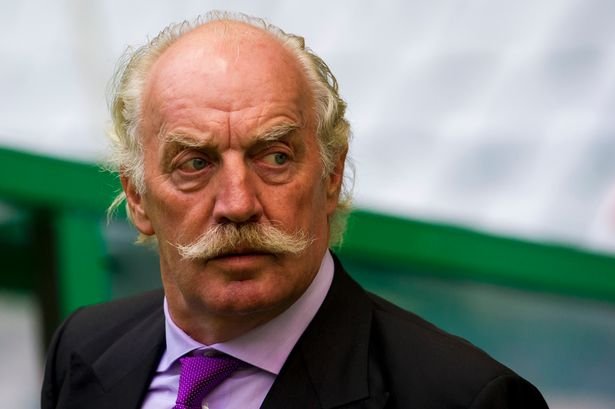Andrew Doyle, the visionary behind the Atlantic League concept, has levelled criticism at Celtic for their apparent lack of drive and effectiveness in European competitions.
In the 2020/21 season, Doyle put forward the idea of a league that would include teams from Scotland, Ireland, and Scandinavia. This proposal aimed to boost the competitiveness of these nations’ top clubs in Europe, offering an alternative to their limited success in the Champions League.
The league was projected to bring in £350 million in revenue, with support from notable entities like investment giant JP Morgan and UEFA president Aleksandr Ceferin.
Despite this, Celtic’s principal shareholder, Dermot Desmond, expressed disinterest in participating in this novel competition, preferring to keep the team in the Scottish Premiership.
In a candid interview with the Daily Mail, Doyle expressed his disappointment with Celtic’s satisfaction with dominating domestic competitions without facing significant challenges.
He highlighted that with the incoming changes to the Champions League, which promise even more financial rewards, the likelihood of Celtic joining such a breakaway league seems slim.

Doyle pointed out that Celtic’s contentment with leading a less challenging Scottish Premiership and facing early exits in the Champions League, due to the lucrative financial gains, perpetuates a lack of competitiveness in Scottish football.
Doyle remains sceptical of Celtic’s ambition in Europe, suggesting that their comfort in collecting Champions League revenue without pushing for greater success undermines the potential for a more competitive Scottish football environment.
Asked if it would have benefited Celtic, Doyle responded: Celtic would have to want to be competitive in Europe and my guess is they’re perfectly happy being at the top of a depreciating SPFL forever and then being perennially uncompetitive in the Champions League.
“It’s a gravy train and they’re on it. The new UEFA Champions League format is even better for them more European games equals even more European money for them.

“Our structure would have passed all reasonable UEFA criteria because it benefited all stakeholders, not just Celtic and Rangers, in Scotland’s case. So long as the current system remains and Scotland’s place in the UEFA access list remains relatively high, Celtic are most unlikely to go for it.
“I think they’ll be very happy to continue winning the Premiership more years than not, where they’ll gain automatic access to the round of 32 and then get hockeyed there, but still get all that European cash.”
This perspective has long resonated among Celtic supporters regarding the club’s European campaigns. There’s a prevailing sentiment that the club seldom ventures beyond its comfort zone or invests significantly to enhance its performance in European competitions. Instead, the strategy appears to lean towards collecting the earnings while the supporters bear the cost of high ticket prices, only to witness Celtic endure significant defeats several times each season.








